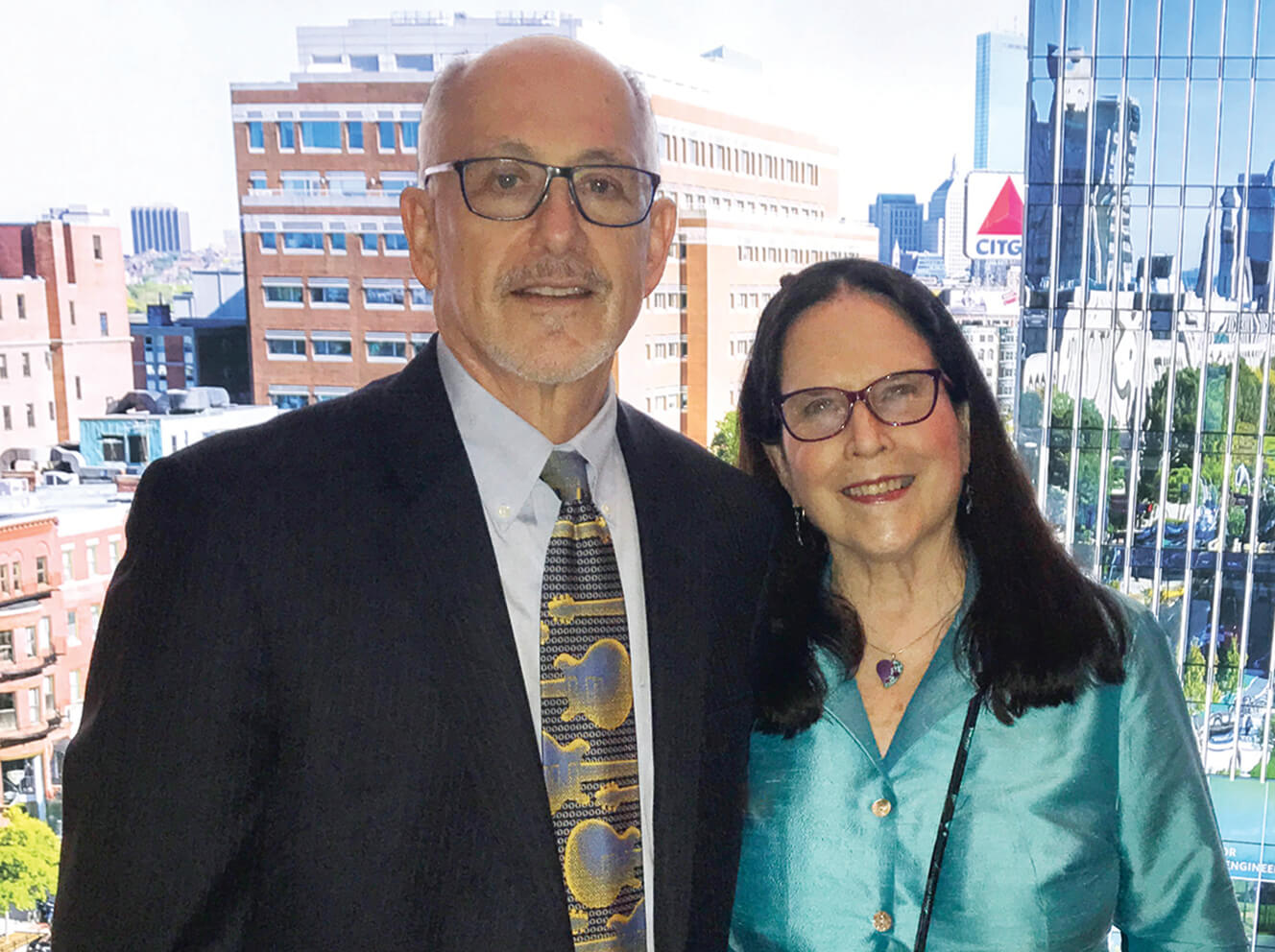Christina and Richard Ronder, members of the Mass General Leadership Council for Psychiatry, are believers in the council’s motto, “No Family Goes Untouched.” The struggles of individuals with serious mental illness are shared, and, indeed, shouldered by family members and loved ones, Christina notes. “It’s hard to meet anybody who has not been affected at some level.” And those affected need relief, the Ronders recognize. That is why they are supporters of the Department of Psychiatry at Massachusetts General Hospital.
Supporting Families in Need
This same passion is why they started a company, ForeverParent, which works with families to ensure long-term care for individuals with mental illness, intellectual disabilities and other special needs. “Unsung, heroic efforts are expended 24/7 to ensure the health and happiness of family members who have these issues,” Richard says. “The needs are never-ending.”
There are parents, he notes, of adult children 40 and 50 years old who have never taken a vacation without them. Adding to the responsibility is their worry over an uncertain future. Who will take care of their child when they are no longer able? “Forever starts today,” Richard says. “The challenge is getting families to act. Putting a plan in place before there is a crisis offers peace of mind and, most importantly, allows the parent to be part of the plan, rather than leave the future to chance.” As Christina explains, “it’s hard to let go, but it’s not letting go. It’s getting help to ensure that the quality of life they have worked so hard to put in place in their lifetime will continue beyond them.”
Providing Access to Life-Changing Treatment
In keeping with their commitment to expand access to state-of-the-art care, the Ronders are funding a comprehensive outreach, education and training initiative of the Psychosis Clinical and Research Program. This project, led by Oliver Freudenreich, MD, (co-director of the program) and psychiatric nurse practitioner Sarah MacLaurin, RN, features the creation of a Treatment-Resistant Schizophrenia (TRS) Service to improve care for patients with difficult-to-treat schizophrenia. The program has two main clinical components: a psychosis consultation service for second opinions and education; and a clozapine clinic.
Clozapine is one of the most effective medicines for patients who have not responded to other therapeutics, but it is too often inaccessible because of insufficient training or experience. “The clozapine clinic provides an essential service to the community, with a virtual component to increase access and an emphasis on med-psych integration to make psychiatric treatment as safe as possible,” Dr. Freudenreich explains. “A healthy mind in a healthy body is one of our guiding principles. Put differently: without medical health, there is no psychological well-being — and vice versa.” Clozapine has many potential side effects that need to be well managed, Dr. Freudenreich notes.
The team works with primary care doctors to make sure patients who need clozapine for their psychiatric illness can get it and can take it safely. “I am very grateful to the Ronders for recognizing how important it is to bring everything under one roof, in the form of this Service.,” says Dr. Freudenreich. “The clozapine clinic keeps people out of the hospital and the Emergency Department, which means a great improvement in their lives,’ Richard says. “And a huge savings,” he adds, sounding like the business leader that he is. “We feel fortunate that we can support Mass General,” Christina adds. “If we can help them with resources, they can concentrate more on their work and less on finding funding.
Fighting Stigma
The Ronders say they are impressed by the sheer persistence and dedication of the Psychiatry faculty. “They continually seek creative solutions and don’t give up.” The Ronders say they share the mission of Mass General Psychiatry and the Leadership Council to increase knowledge and understanding of mental illness and reduce the stigma. It is why they feel compelled to speak out.
“It is important to us that people have a better understanding of mental health issues,” Christina says. Stigma robs individuals and families of dignity and respect, she says, and diminishes their ability to enjoy the simple pleasures of life. “The stigma is hard — just unbelievable,” she says. “Families are afraid they won’t be invited to weddings. Or they are afraid to go because their child may make a scene. We’ve got to destigmatize mental illness. It touches everybody. The more we talk about it, the more people understand, we can start to turn the tide on this.”
To make a gift or learn more about supporting the Mass General Psychosis Clinical and Research Program, please contact us.


